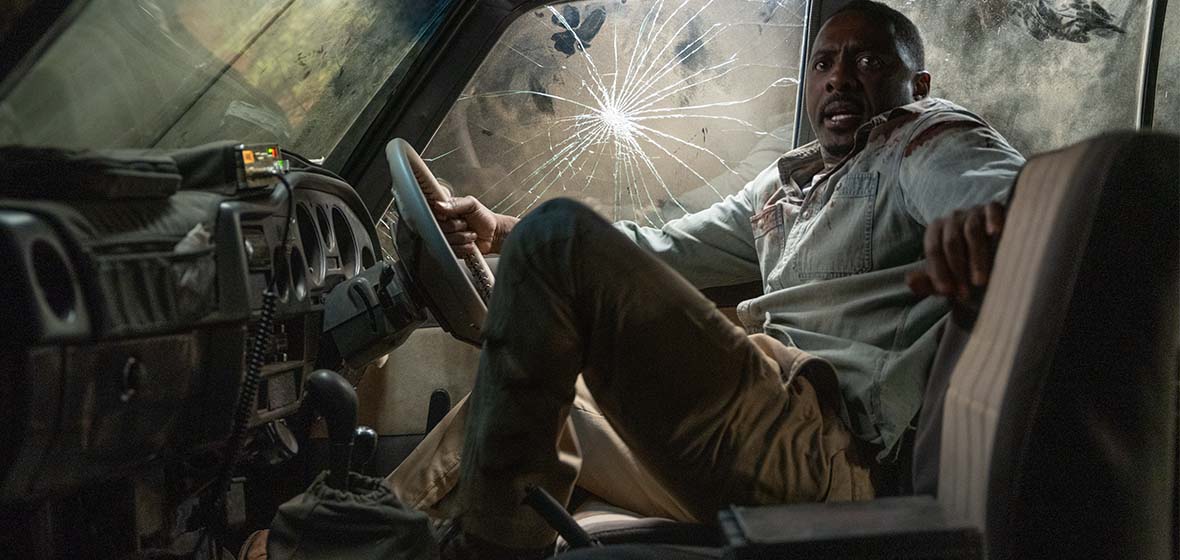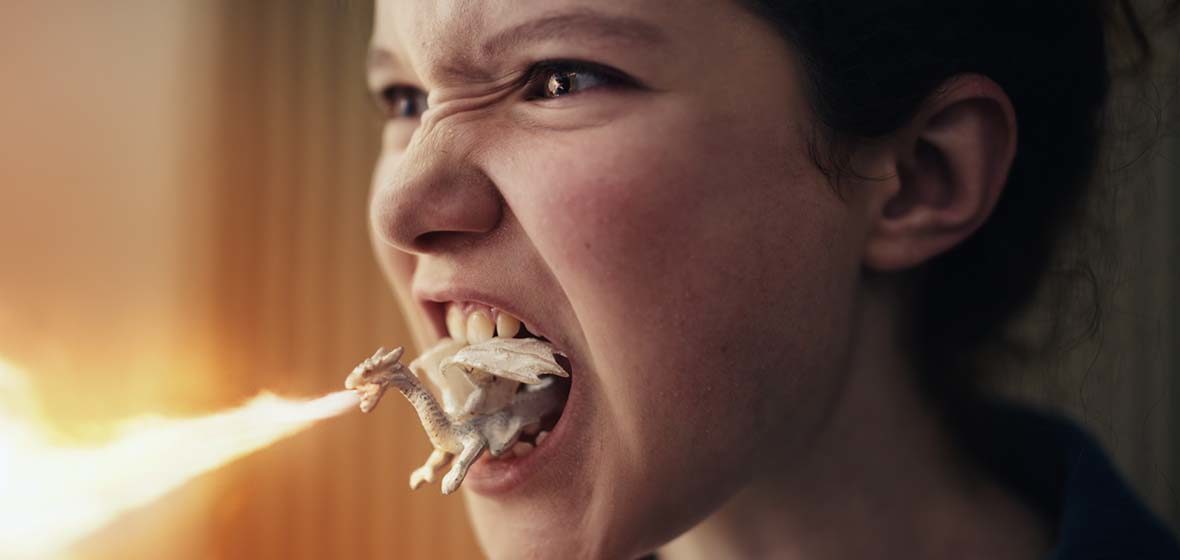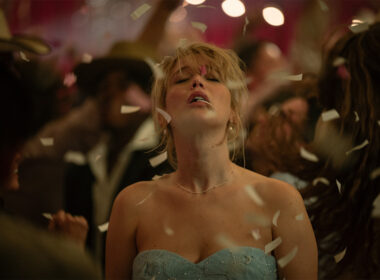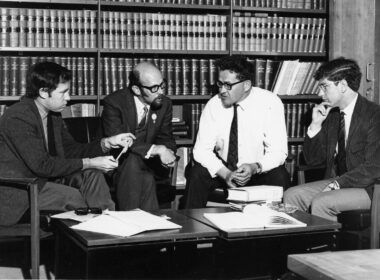Blaze: ***
Beast: ***
Blaze is an Australian film that fights tooth and nail to stand out from the crowd. Directed by an established artist and two-time Archibald winner, Del Kathryn Barton, it has all the characteristics of a film from an artist-turned-filmmaker. It’s visually enticing, with a larger-than-life concept that challenges preconceived notions of the medium of film while trying to discover, by trial and error, what excites this new audience.
In a way, it’s an extension of the artist’s paintings, as if repurposed to a narrative medium. So this film feels new and fresh, like someone trying to learn how to walk by examining Muybridge’s photographs. It’s endearing. This “blank slate” approach is how art evolves. It happened with David Lynch, and it could happen again.
Not to say that Blaze is flawless, because it definitely isn’t. The story follows an idiosyncratic young girl called Blaze (Julia Savage), who witnesses a vicious rape and murder in the street. Traumatised, Blaze tries to do the right thing and testify in court. Still, her peculiar way of seeing the world, including finding comfort in a gigantic colourful, knitted dragon that lives in her room, means she comes to be considered an unreliable witness.
From the point that her account of the event is cast into doubt because of her overactive imagination, Blaze tells the story of a young girl on the cusp of puberty, coming to terms with the fact that the real world is unforgiving. This is a concept that has been explored by other artists and filmmakers, and it’s hard to see thematically what Barton brings to the table. The film relies too much on the strength of the fantasy scenes: it’s in those scenes that it shines brightest. The sequences grounded in reality are dull in comparison, and Barton lacks depth in her character depictions.
Take, for example, Blaze’s father, played by Simon Baker, who also produced the film. He’s a good dad. A great dad, even. Reminded me of the father in Hayao Miyazaki’s My neighbour Totoro (another film about children relying on an imaginary creature as a coping mechanism). In a sense, both films defy the convention of the usually disapproving or skeptical father-of-special-child. In both Blaze and Beast, the fathers are presented as caring and supportive. Until Baker isn’t supportive, seemingly for no reason whatsoever; someone may have told Barton and her writing partner Huna Amweero that they needed an action scene at that point in the script with no plot relevancy.
This is disappointing, because Baker sells his character with gusto. Yet we rarely find out anything about him aside from the fact he brings his work home. Who is he? What does he do outside of looking after his girl? Does he have friends? Does he go to the pub? These may seem like trivial questions, but the fact that they need to be asked reveals that the world of the film revolves solely around Blaze’s character. And if she’s the centre of this universe, then it’s hard to see her as a lonely teenager struggling to fit in – everyone around her, from her friends to her father, pays only attention to her.
And yet Blaze is a film I’d happily recommend. That three up there deserves a half point after it, and for a first feature that’s a great starting point. The ending alone is an artistic tour de force heightened by gorgeous magic surrealism. If Barton had posed the question, “What if my art moved and had a sound?” the result would be precisely that. Following the footsteps of Julian Schnabel and, to a lesser extent, Jean Cocteau is exactly the right course of action for a filmmaker experimenting with the means at their disposal.

At the exact opposite of the spectrum is Beast. Where Blaze is quixotic and stunning, Beast is gritty, immature, and ugly. A bit obtuse, but also insanely entertaining.
Here the father, played by Idris Elba, is the centre of the action. He is taking his daughters to visit their dead mother’s African country when things turn violent. The surviving lion of a poacher’s attack exacts revenge on every human being he comes across, which, as luck would have it, happens to be Elba’s family.
The lion is an impressive feat of CGI design. There is more energy and complexity here than in every pixel of that grotesque remake of Lion King, and I found myself supporting both lion and humans. Certainly, Elba and the girls don’t deserve to die, but if some collateral damage can give this animal peace of mind, so be it.
At the times that Beast is situated squarely in the action genre, it offers some of the best action of the year. Icelandic director Baltasar Kormákur uses unnervingly long takes, which are well-choreographed yet not used to their full potential. This happens many times in the film, and every single time I feel he’s missed the chance to push the suspense to its most effective limits.
The biggest failure of Beast is that it fails to contextualise its characters’ personalities in the plot. There’s a touch of Jurassic Park, with a grieving father instead of a reluctant one here, but not even half the technical ability to make it work in the context of an animal attack. If Blaze has little to no characterisation of its protagonists, Beast has far too much, and it’s misdirected.
I wonder what would happen if Elba could trade places with Simon Baker’s character in Blaze. And then maybe one could have managed his grief by comforting a traumatised child, while the other would have found a situation where his actions meet a vital necessity. And then both films would offer a fundamental lesson on channelling sorrow.
But instead, Beast is a film that directs us to look for sense in the whole only, and not the small details. As an example, one of the girls gets out of the car when it’s too dangerous to do so. For no apparent reason: this just means we get more crazed lion action. Elba decides to go, at night, to a swamp, an environment riddled with lions, crocodiles, and poachers with guns. Not a good idea, certainly, but perhaps this seemingly senseless plot point is a good device for making the film entertaining.
Of course the plot could have done with more intelligence. But that doesn’t change the fact that this film ends up offering an unashamedly good viewing experience.




